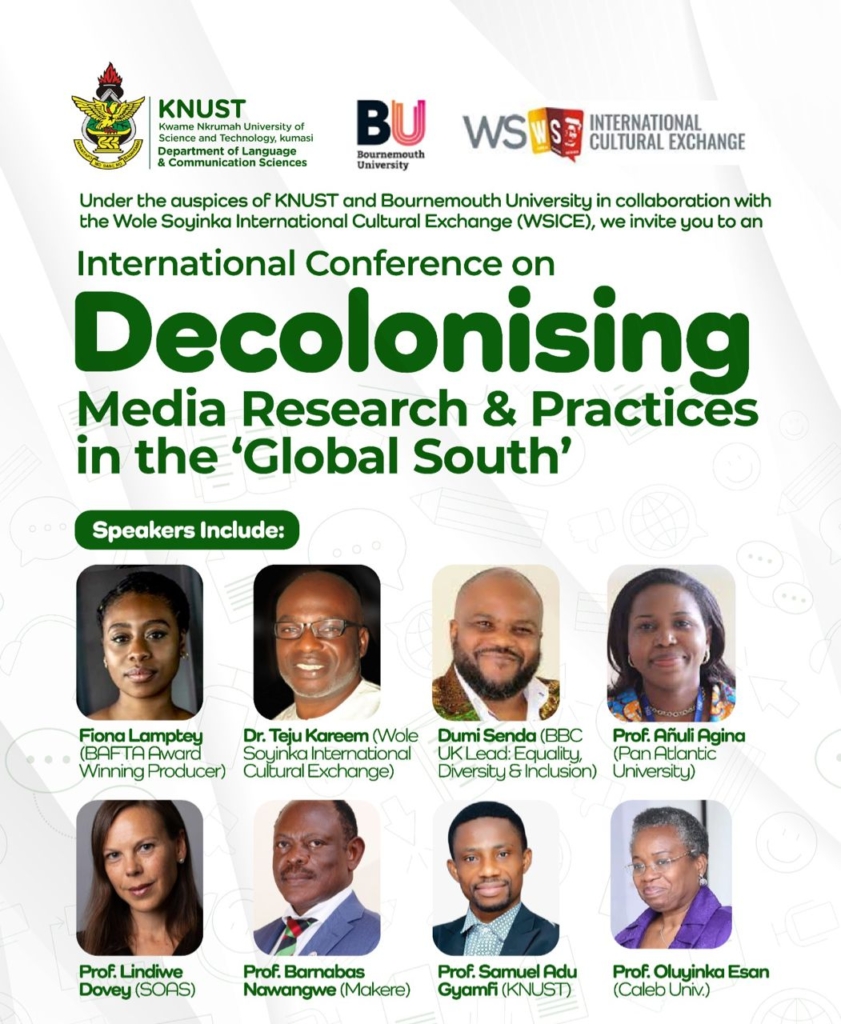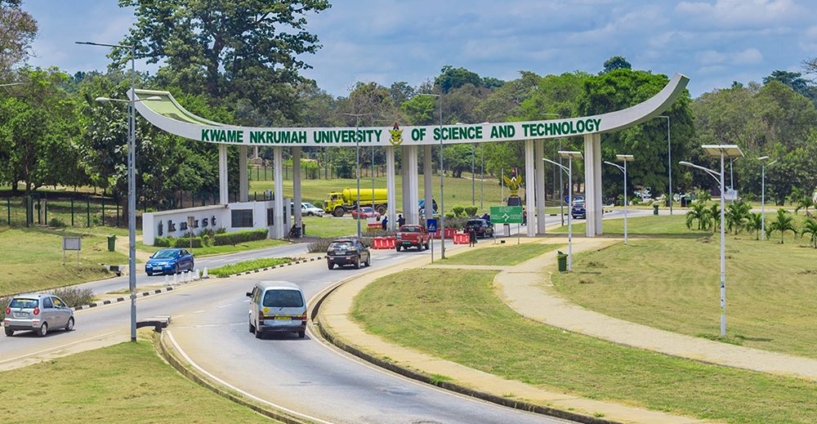The Kwame Nkrumah University of Science and Technology and its collaborators at the Bournemouth University and the Wole Soyinka International Cultural Exchange have begun a three-year project titled “Media Decolonisation Imaginary”.
The project which starts in 2024, is expected to end in 2026 after its in-person and virtual inaugural section in January.
The first day of the inaugural sections, facilitated by the collaborators, focused on “Tracking Africa’s Journey on Decolonisation” thus exploring nexuses between decolonisation, Intersectionality, globalisation, cosmopolitanism, neo-colonialism, transnationalism, and (re)appropriation.
The second day also focused on the need to understand the intersectional nature of African identities in decolonised contexts as it has become apparent. In this light, Postcolonial scholarship advocates for ethical accountability that is demonstrated in, amongst other ways: Apprehending dominant Western knowledge systems during transnational collaborations between the West and the so-called Global South.
Notable speakers included Fiona Lamptey, the award winning British Filmmaker, Prof. Barnabas Nawangwe, Vice- Chancellor, Makerere University, Uganda, Prof. Samuel Adu-Gyamfi, Historian, KNUST , Prof. Oluyinka Esan, Caleb University, Nigeria and Dumi Sanda, BBC.
The project is coordinated by Dr. Samantha Iwowo, Dr. Szilvia Ruszev, Bournemouth University, Prof. Charles Marfo, Dr. Fortune Tella , KNUST and Dr. Teju Kareem, WSICU.

With its focus on Africa, South Asia, and Latin America, the project aims to develop a theoretical line of rethinking current decolonization practices in media, while linking this closely with educational practice and media production.
The project starts initial contributions towards theorising decolonization by revisiting the ontological underpinnings and epistemological consequences of colonized media methodologies.
The project follows the ambition to advance new and inclusive methodologies for decolonizing media research, especially as the concept of media itself is in constant change, impacted by historiographical positionalities, and technological innovations in interdependence with global capitalism.
This will bring together a cross-national and interdisciplinary team of scholars and media practitioners interested in exploring decolonising methodologies in media research.
The two aims of the initiative are to create a shared theoretical and methodological framework that will see an international team of researchers facilitating collective discussions to identify gaps and explore innovative new understandings of decolonization in media research methodologies and practice.
New findings and understandings of decolonisation will be used to explore their potentialities for impact in pedagogy, practice, praxis, media industries, and minoritised communities in the "Global South".
Latest Stories
-
EPA says lead-based paints are dangerous to health, calls for safer alternatives
60 minutes -
Queenmother calls on President-elect Mahama to appoint more women in his government
3 hours -
Atletico Madrid beat Barcelona to go top of La Liga
3 hours -
Usyk breaks Fury’s heart with points win in rematch
3 hours -
Ghana-Russia Centre to run Russian language courses in Ghana
9 hours -
The Hidden Costs of Hunger: How food insecurity undermines mental and physical health in the U.S.
9 hours -
18plus4NDC marks 3rd anniversary with victory celebration in Accra
12 hours -
CREMA workshop highlights collaborative efforts to sustain Akata Lagoon
12 hours -
2024/25 Ghana League: Heart of Lions remain top with win over Basake Holy Stars
13 hours -
Black Queens: Nora Hauptle shares cryptic WAFCON preparation message amid future uncertainty
14 hours -
Re-declaration of parliamentary results affront to our democracy – Joyce Bawah
14 hours -
GPL 2024/25: Vision FC score late to deny Young Apostles third home win
14 hours -
Enhancing community initiatives for coastal resilience: Insights from Keta Lagoon Complex Ramsar Site Workshop
14 hours -
Family Health University College earns a Presidential Charter
14 hours -
GPL 2024/25: Bibiani GoldStars beat Nsoatreman to keep title race alive
14 hours

